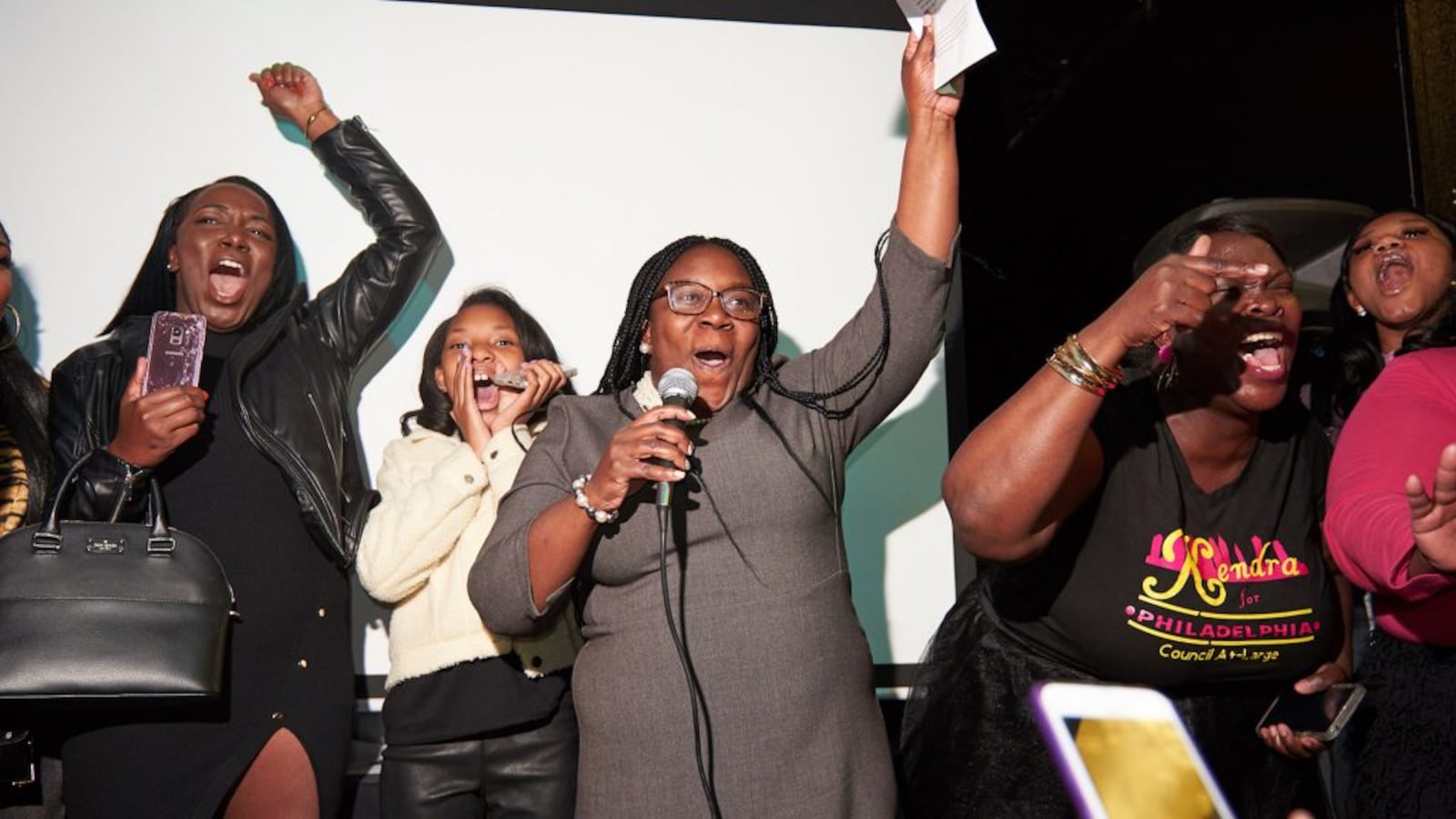This article was originally published in The Notebook. In August 2020, The Notebook became Chalkbeat Philadelphia.
As an unprecedented election night comes to a close, history has been made in Philadelphia: Voters took away a City Council seat that has been held by Republicans for generations.
Working Families Party candidate Kendra Brooks held an insurmountable lead of 10,000 votes over her nearest rival, according to unofficial election returns. The insurgent third-party candidate, who campaigned on ousting Republicans from City Hall, declared victory just after 11 p.m. on Tuesday night.
With nearly 95% of votes tallied, the five Democratic nominees clinched the remaining at-large seats, with the five highest vote totals. Two of Council’s seven at-large seats are reserved for candidates from a minority political party — and it was that bottom-ticket contest that proved the most competitive on Tuesday’s ballot.
Brooks was one of several third-party candidates — including her Council running mate Nicolas O’Rourke — looking to wrest a seat away from the local GOP.
See also: Education Activist Kendra Brooks challenges the system, running for Council at-large seat
It is the first time since the Home Rule Charter (aka Philly’s current governing document) went into effect nearly 70 years ago, and the first time an third-party or independent won any elected office in the city since 1980.
“We voted, we organized,” said Brooks at her victory party in North Philadelphia. “We did the damn thing. But that was just the beginning.”
Brooks will be one of four new faces on the 17-member legislative body next year, joining Democrats Isaiah Thomas, Katherine Gilmore-Richardson and Jamie Gauthier.
Founded in 1998 in New York, the Working Families Party began as a progressive and independent group that sought to nab cross-ballot endorsements and supplant Democratic candidates. The party rose in the public eye locally during the Occupy Philly protests in 2011, and also gained organizing power during U.S. Sen. Bernie Sanders’ presidential bid in 2016.
Brooks’ election signals a further leftward shift on City Council. She ran on issues like expanding affordable housing, fighting for some form of rent control and ending the 10-year property tax abatement, abolishing sheriff’s sales, and other progressive issues.
How did she pull it off? Brooks’ campaign raised more money than any third-party candidate in history, and secured a raft of influential endorsements — including many from across the aisle. Her appeal to Democratic leaders that they should leave the party trench and endorse her bid rankled many in the political establishment. She put up television ads in the week leading up to election, and got a helping hand from politically powerful labor and progressive groups.
Councilmember Helen Gym — a wildly popular councilmember often cast as Council’s progressive ally — also championed Brooks.
WHYY’s Ryan Briggs contributed reporting.


